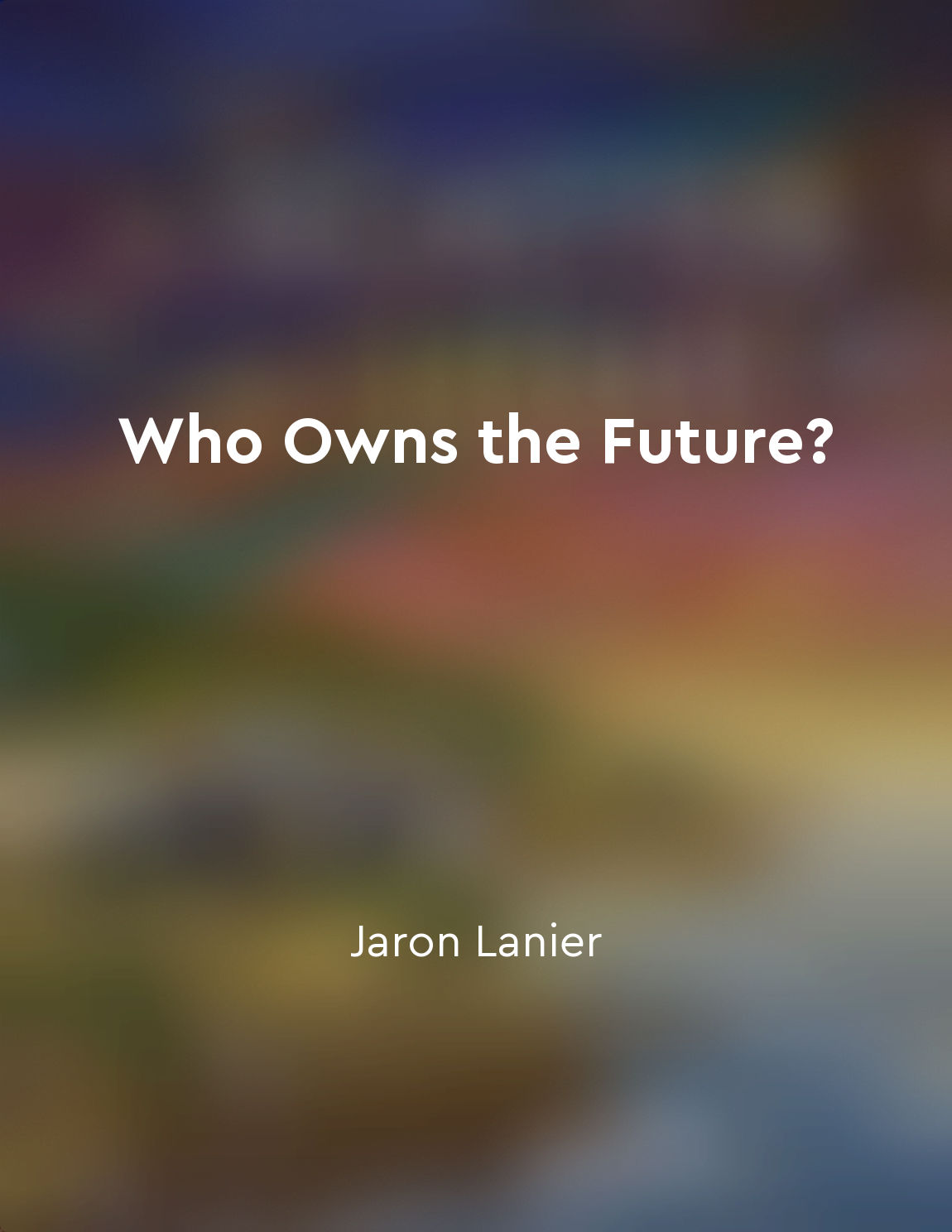Technology has the potential to benefit society as a whole, not just a select few from "summary" of Who Owns the Future? by Jaron Lanier
Jaron Lanier argues that technology has the power to improve the lives of everyone in society, rather than just a privileged few. He believes that the current structure of the digital economy is unsustainable, with wealth and power becoming concentrated in the hands of a small elite. Lanier envisions a future where technology is used to empower individuals and create a more equitable society. According to Lanier, the key to achieving this vision is to rethink the way we value information in the digital age. He argues that the data generated by individuals online has immense value, yet the vast majority of people see little to no benefit from it. Instead, this valuable information is collected and monetized by large tech companies, further widening the gap between the rich and the rest of society. Lanier proposes a new economic model where individuals are compensated for the data they provide, giving everyone a stake in the digital economy. By redistributing the wealth generated by online activities more equitably, technology can be harnessed to benefit society as a whole. This would not only address economic inequality but also empower individuals to take control of their own digital identities. In Lanier's view, a more democratic and inclusive digital economy would lead to a more just and sustainable society. By ensuring that the benefits of technology are shared by all, we can create a future where everyone has the opportunity to thrive. This shift in mindset is crucial for harnessing the full potential of technology to benefit society as a whole, not just a select few.Similar Posts

We must rethink our approach to data ownership and distribution in the digital age
In today's digital age, the way we think about data ownership and distribution must change. The current system is flawed, as it...
Embracing diversity for collective progress
The key to progress lies in embracing diversity. The world is a mosaic of different cultures, beliefs, and ideas. Each one brin...

Environmental concerns highlighted need for sustainability
The world we inhabit is facing a crisis of monumental proportions. Our once abundant natural resources are being depleted at an...
Target 3 Billion: Transforming futures using technology
Target 3 Billion presents a vision for leveraging technology to improve the lives of three billion people living in rural and u...

Data should not be centralized in the hands of a few powerful corporations
A central idea in 'Who Owns the Future?' is the danger of allowing data to be controlled by a small number of powerful corporat...
Adapt to change
In the twenty-first century, the ability to adapt to change is more important than ever before. With the rapid pace of technolo...
